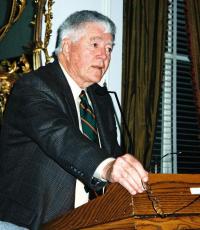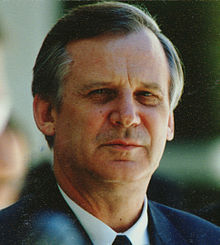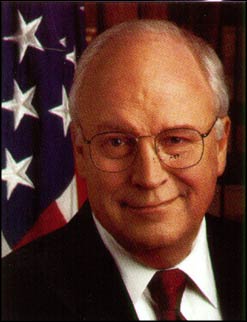Long-time reader and lurker chiming in:
First of all, I have to thank Drew for writing such a gripping timeline. It would make a very good book, or maybe even a TV series in the style of House of Cards.
This part of an old update irks me, though:
товарищ будущее (Comrade Future)
Gorky Film Studios (1987)
Gennady Seminov is a well-intentioned,* but bumbling graduate student with an uncertain future. He has a high regard for Prf. Zhilkov, an eccentric but ingenious teacher at Bauman Moscow State Technical University. Gennady is troubled by his father, a mid-level state official, who is expressing increasing pro-Captialistic sentiment. Seminov Senior is being abused by his boss Bifferov, who has Seminov Sr. complete all his work behind the scenes, while Bifferov takes credit for it. Gennady sees that Bifferov is a secret arch-capitalist, but he is setting Seminov Sr to take the fall for political dissent while he (Bifferov) can continue to plot to undermine the Soviet way of life.
Through a series of misadventures Gennady learns that Zhilkov is conspiring with terrorist elements to sell them weapons so that he complete his latest invention, a so-called time machine. (The time machine is a converted Lada with enhanced speed capabilities). Gennady helps Zhilkov escape from a terrorist trap, but in the process the time machine takes them thirty years into the future. There Gennady and Zhilkov learn that the Soviet Union has been destroyed by capitalist intrigues, centred around the current pro-imperialist, militarist dictator Bifferov. Bifferov has turned the former Soviet Union into a Darwinian hellscape that Zhilkov compares to Rumsfeldia “but without the nice parts.”
After escaping Bifferov’s Gestapo-like secret police, Gennady and Zhilkov try to discover how Bifferov came to power. They learn that sometime around when they left, Bifferov seemed to come into knowledge that allowed him to anticipate future events, and profit from them.
Meanwhile the aging Bifferov (who likes to execute Communists in his living room as a way to relieve tension) learns about the presence of Gennady and Zhilkov and begins to worry. His agents find the Lada, and Bifferov escapes back into the time. The automated settings on the Lada bring it back to the future (present).
Upon learning what Bifferov has done, they realize that the dictator has gone back in time to alert his younger self and eliminate them, as well as giving the younger Bifferov the necessary knowledge of the future. After fooling the guards, Gennady and Bifferov manage to get back in the Lada and take it back to 1987.
They find the aging Bifferov trying to persuade his younger self that he can give him the keys to power, but first he must kill Gennady and Zhilkov and destroy Zhilkov’s time machine work (so the future Bifferov will have the only working time machine).
The younger Bifferov tries to capture Gennady by holding his family prisoner, but the attempt fails when Gennady devises a plan to go back in time to 1977 and stop Bifferov before he became a state official. In 1977 he sets-up Bifferov to appear to be an anti-Soviet conspirator, and after attempting to elude the KGB in a car chase, Bifferov ends-up crashing into a truck full of manure and is hauled off to prison.
Gennady returns to 1987 to learn Bifferov has disappeared. Zhilkov is now an esteemed professor and scholar, his father is a senior official (and proud exponent of MBA Communism), and the original time travel seems to have been erased from everyone’s consciousness except Gennady’s.
With life better under a pro-MBA Communism trajectory, Gennady decides to hide the time machine until it is needed again. Meanwhile he begins his new life as a state official helping the people.
*=means a good MBA Communist type
------------------------------------------------------------------
Звезда Освобождение (Star Liberation)
A Soviet television series which tells the story of the Starship Lenin and its bold crew, which is on a five year mission to spread the truth of Communism through the galaxy and liberate planets and societies held under imperialist and feudal ways of life. The prime directive of their government, the Soviet Federation of Planets, is to “liberate all worlds from oppression and set them on the path to Marxist-Leninist progress.”
Each week the Starship crew saves a planet from a collection of capitalist, imperialist, war-monger and/or neo-Nazi types, setting planets and civilizations on the “true course of liberation.”
Among their enemies are the warlike, Nazi-type Teutons (who have raised ridges on their foreheads) and the subversive, uber-capitalistic Remulaks (who look suspiciously like the people of Вперед [Vpered]).
The crew is composed of Comrade Captain Tserkov, a hero of Revolutionary zeal, always bold and ready to lay down his (and his crew’s) life for Revolutionary progress.
Comrade First Officer Blestyashchiy comes from the planet Вперед [Vpered] which long ago gave-up capitalism for the perfect order of Communism. He uses impeccable Revolutionary logic to guide the others in their quest to spread Galactic Liberation.
Comrade Dr. Pskov is an amiable surgeon, but given to ideological heresy and political ignorance (excused by his zealous focus on medicine), which is often gently corrected by Mr. Blestyashchiy’s logic. Dr. Pskov often sees his error during these lessons and repents of his past ideological deviance.
The crew is composed of a Chinese helm officer, a British navigator, and African communications officer and a Japanese Chief Engineer (Mr. Miyamoto). The role of Zampolit (Political Officer) is often filled by a popular guest star, who uses the role to emphasise some positive aspect of MBA Communism.
The global crew comes from a world liberated by the logic and success of MBA Communism. Only America remains un-represented. Though never directly addressed, it is hinted that America succumbed to an early type of anti-Revolutionary madness (often compared to the Teutons and Remulaks) that lead to its self-destruction.
“Space, the final frontier, cloaked in the political darkness of imperialist capitalism and feudalism.
These are the voyages of the heroic starship Lenin.
It’s five year mission: to heroically seek out the worlds under the boot of imperialist capitalism and feudalism, and bring awareness of Marxist-Leninist principles to the oppressed: to boldly go where no revolutionary has gone before and spread the spark of liberation.”
Soviet science fiction, especially post-WW2, wasn't so blatantly propagandist - that looks like a bad parody of North Korean media. If there was a need to describe a communist society of the future, the ideological stuff was usually left out and the events leading to its creation were often very vague or simply not described at all - the victory of communism was seemingly a logical turn of events, something that would happen
by itself sooner or later. The stories of officially approved Soviet sci-fi were focused on the people of the future and the challenges they faced, and not on tenets of Marx and Lenin or something like that. Since communism's superiority to capitalism was so obvious, there was no need to bring revolution to anyone - the 1920s and its idea of USSR liberating the workers of the world through the force of arms were a thing of the past. If a civilization couldn't advance to communism, it would wipe itself out, by nuclear war, resource depletion, or both, because capitalism is self-destructive and unsustainable. Obviously, not everything was conforming to socialist realist ideals - Strugatsky brothers and Tarkovsky are good examples.
Also, television series were pretty rare in USSR - a two-three part television film format (each about an hour long) was more preferred.
-----------------------------------------
My ideas of some Soviet films (action and sci-fi) of TTL 1980s. I hope they fit the timeline:
Операция "Солнцепёк" (Operation Blazing Sun), 1981
Mosfilm Studio, directed by Mikhail Tumanishvili
1970s. As Soviet and American forces conduct a peacekeeping operation in Syria, a cabal of American militarists and businessmen, led by CIA's Colonel Crowder, plans to stage a false flag attack in Turkey. Using a secret CIA death squad disguised as Islamist terrorists and armed with Soviet weaponry, they plan to frame Soviet Union as aiding Jihadists, thus ruining Soviet-American relations and ensuring more lucrative weapon contracts for American corporations. This mission is assigned to Major Jack Hassolt, a war criminal who massacred civilians during the Vietnam War and got away from prosecution thanks to Crowder.
However, Hassolt understands that he and his crew will be assassinated immediately after the completion of the operation. He snaps, goes rogue and seizes a NATO naval installation with a docked American nuclear submarine on one Mediterranean island. His plan is to launch a nuclear missile at Soviet Navy ships, triggering a war between the Soviet Union and the USA.
A joint strike force of Soviet Naval Infantry and US Marines launches an operation to retake the base and stop Hassolt from starting WW3...
Час Быка (The Bull's Hour), 1983
Gorky Film Studio, directed by Richard Viktorov
A film adaptation of the sequel to Ivan Efremov's utopian sci-fi novel "
Andromeda Nebula".
Starship "Dark Flame" from communist Earth, equipped with an experimental FTL engine, encounters a space-time anomaly and crash-lands on planet Tormance, a mythical lost human colony that was settled by primitive sleeper ships that fled Earth during the chaotic Fission Age shortly before the unification of Earth. The planet, desolate and heavily polluted, is ruled by a totalitarian corporate oligarchy led by Chairman Choyo Chagas and his Board of Directors (nicknamed the Big Four). The planet's resources are almost entirely depleted, and most of the population is divided into two castes: the so-called "short-living" Kji that fulfil menial work and are killed off after turning 26, and the "long-living" Dji, intellectuals that live up to 34. They are kept in line by the bureaucrats "snake-carriers" and "lilacs", the security forces, all of which answer to the Chairman and the Directors.
While trying to repair the starship's engines, the crew establish contact with the locals. When the news about the starship reaches the Board, Chairman Chagas orders to seize the ship and its crew, as they are a major threat to his rule. He also plans to reverse-engineer the ship, build a space fleet of his own and launch an offensive against Earth. The crew's only hope of leaving the planet in one piece is the weak and disorganized Resistance movement...
A very troubled production - many parts of the original story were changed, either for drama or because of censorship. For example, Tormance's rulers were originally called the Council of Four, an allusion to Mao Zedong's Gang of Four, and the Chairman was inspired by Mao himself (the book was written in 1970). In the film, it was changed into a corporatist Board of Directors, and the film's Chairman was described by foreign critics as a clear allusion to Rumsfeld. Some other parts of the original story were redacted by Soviet censors, like the monologue stating the Right to Know and Right to Think are the most important rights for all sentient beings and that the intergalactic community, the Great Circle of Civilizations, intervenes on planets where the residents are deprived of them. Also, some claim the original ending reportedly had the caption "The scenes of dying planet Tormance were shot at the territory of the Soviet Union" before the credits. It was the last film for renowned Soviet sci-fi film director Richard Viktorov, who passed away during post-production.
Nevertheless, it was a big hit in the Soviet box office and spawned a wave of other Soviet sci-fi films in the late 1980s-early 1990s. It also had a limited release in Western Europe in 1984, but wasn't as successful as in the USSR, due to less than stellar special effects compared to Western films; it was also derided for being 'knock-off propaganda' by some foreign critics. Banned in the USA.
И грянул гром... (A Sound of Thunder), 1985
Ekran Television Film Studio
An adaptation of the eponymous short story by Ray Bradbury, made into a television film and broadcast during one of the episodes of a science fiction show "Этот фантастический мир" (This Fantastic World) on CT USSR's First Programme. One of the several Soviet films based on Bradbury's works, the most famous of which was the award-winning animated film "There Will Come Soft Rains" (1984).
It's a faithful adaptation of the original story, with no significant deviations. The fascist presidential candidate Deutscher, shown in the end of the film, looked suspiciously similar to US Vice President Dick Cheney, except with a head full of hair and a moustache.
Мы из Cолнечной системы (We are from the Solar System), 1988
Gorky Film Studio
A television film series loosely based on the eponymous book by Georgiy Gurevich.
The story is set about a century in the future on communist Earth and focuses on a group of teenagers who are thrust into events of planetary magnitude. An outbreak of a mysterious disease in the Citadel Republic, a North American state (with African overseas territories) struggling to recover after decades of war and civil unrest, threatens the entire world. As the World Council declares quarantine measures to limit the spread of the infection, the main characters discover long forgotten papers of a scientist that perished in the Leningrad Blockade, detailing a mysterious device capable of constructing all kinds of matter from basic atoms - a universal constructor...
Among other films,
Kin-dza-dza (1986), Soviet dark satirical comedy about two ordinary Muscovites teleported to an alien desert planet, would probably be not unlike its OTL counterpart.
Furthermore:
- With the warming up of relations between USSR and Western Europe, more foreign films will probably be released in Soviet cinemas. In OTL USSR, many foreign films, especially from countries (relatively) friendly to USSR like France, Italy or India were localized and released for the Soviet audience... after passing censorship, of course. Usually they were comedies and romantic films, but oddities crept in, like the 1978 American action film "Convoy", 1973 Japanese disaster film "Japan Sinks" and 1969 anime film "Flying Phantom Ship", among others. TTL USSR will probably continue doing so. Maybe in the future, the Soviet market will play the same role for film studios as OTL mainland China...
- Soviet film studios might probably take part in joint projects with their Western counterparts.
edit: fixed incorrect author's name








